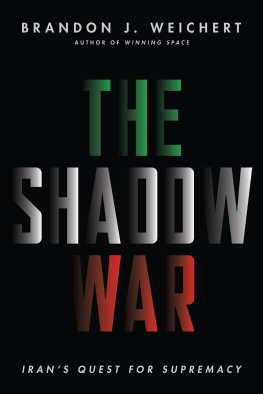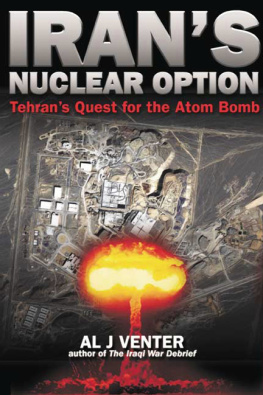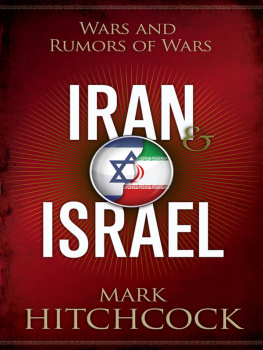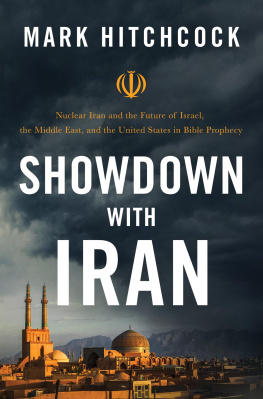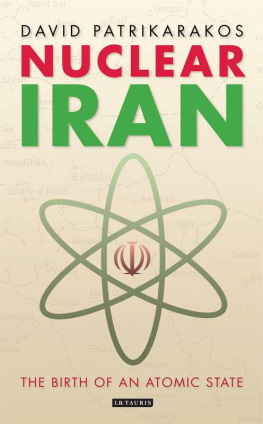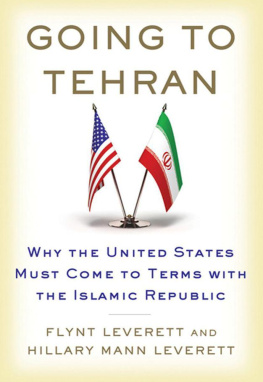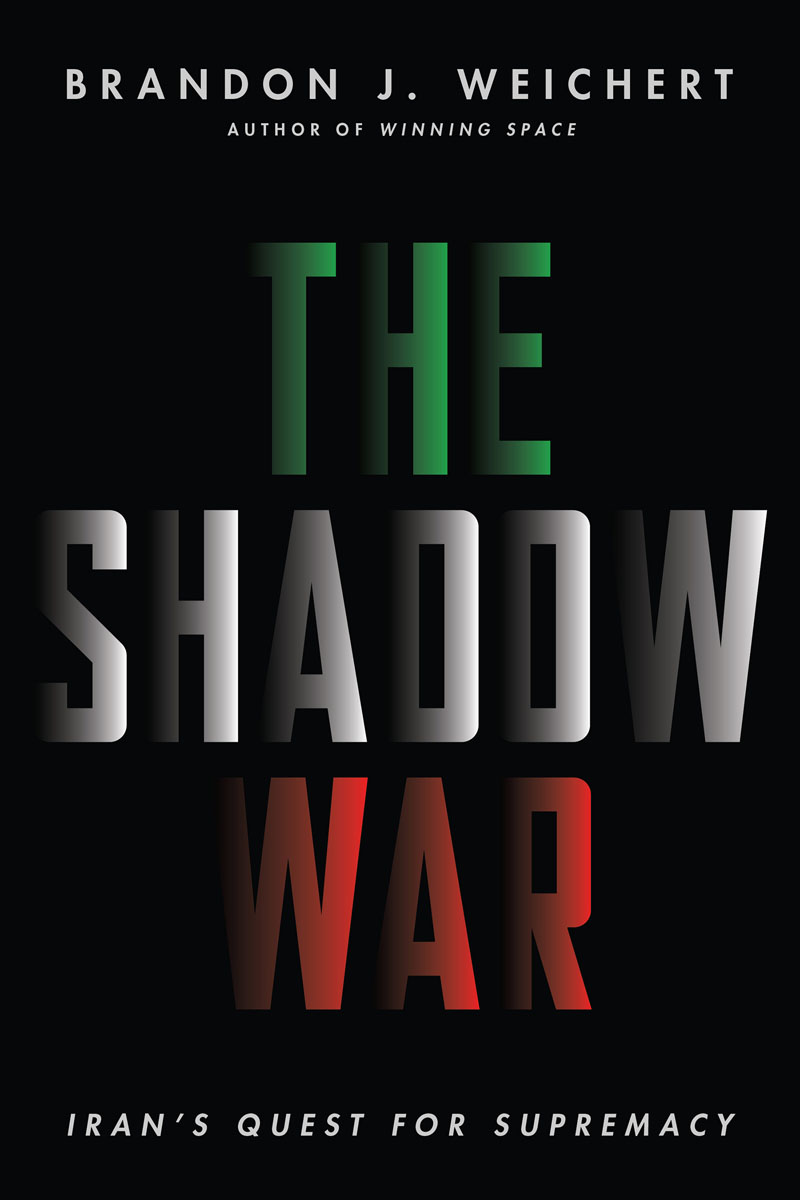

Copyright 2023
The Shadow War
FIRST EDITION
Copyright 2022 Brandon J. Weichert
All rights reserved. No part of this book may be reproduced in any form or by any electronic or mechanical means, including information storage and retrieval systems, without permission in writing from the publisher, except by a reviewer, who may quote brief passages in a review.
All information included in this book is based on the authors recollections, opinions, and views. Publisher makes no representations, warranties, guarantees or otherwise with respect to the accuracy or completeness of the contents of this book.
ISBN (Hardcover) 978-1-64572-056-0 (ebook) 978-1-64572-057-7
For inquiries about volume orders, please contact:
Republic Book Publishers
27 West 2oth Street
Suite 1103
New York NY 10011
Published in the United States by Republic Book Publishers
Distributed by Independent Publishers Group
www.ipgbook.com
Book designed by Mark Karis
Printed in the United States of America
To Ashley, for riding the storm with me.
CONTENTS
FOREWORD
ROBERT G. KAUFMAN
Brandon Weichert has emerged as one of our most well informed, original defense intellectuals in the tradition of the great Herman Kahn: telling us what we do not want to hear but need to know about the gathering dangers imperiling our freedom and prosperity. His first book, Winning Space, ranks high among the most important national security studies of the past two decades. Weichert makes an unassailable and chilling case for why the mounting military challenge of China and Russia in the vital strategic domain of outer space could negate the information dominance essential for sustaining American military primacy. Any Administration should embraceas President Trump prudently did by creating the Space Force as the sixth independent branch of our armed servicesWeicherts diagnosis and prescriptions for winning the Space Race.
Weicherts new book brings the same rigor, originality, and persuasiveness to analyzing the gathering danger of Iran across a spectrum of domains. His well-researched, powerfully argued, and historically well-informed analysis of the origins and trajectory of Irans Revolutionary regime demolish the fallacious assumption of the Carter, Obama, and Biden Administrations that the mullahs running Iran since 1979 are reasonable statesmen with whom the United States can safely do business. Weichert demonstrates, on the contrary, that revolutionary Irans implacable quest for regional hegemony is inimical to Americas vital interest, the vital interest of our regional allies, and the very existence of decent, democratic Israela nation that has consistently stood alongside the United States in its darkest hours.
Mincing no words, Weichert assails the logic and consequences of the Carter, Obama, and Biden Administrations policies for enabling Iranian ambitionsespecially Obamas nuclear deal that President Biden today hopes to revive. The Iran nuclear agreement is a deal that facilitates Iran crossing the nuclear threshold and developing a ballistic missile capacity menacing to Americas regional allies and eventually directly threatening to the United States itself. Weichert well sets the Iranian nuclear threat in the broader context of the revolutionary Iranian regime using regional surrogates, such as Hezbollah and Hamas, in their existential struggle to eradicate Israel.
By Weicherts sound reckoning, Iran envisages nuclear weapons, among other things, as a mechanism for eroding Americas military deterrent without ever having to face US military personnel in direct conflict. Thus, Tehrans leaders seek to invert Clausewitzs dictum by using negotiations to wage war by other means upon their Western enemies.
Weicherts book on Iran also displays an exquisite sense of strategic proportion, taking due measure of the Middle Easts significance relative to Americas other greater geopolitical priorities. His analysis and policy prescriptions for dealing with Iran rest on the sound premise that the Middle East has long dominated Americas foreign policy agenda to the detriment of addressing the nations most significant long-term challenges. Weichert applauds the former Trump Administrations National Security Strategy that began prudently to recalibrate Americas overall grand strategy, thereby rearranging Americas ranking of interests and threats to reflect geopolitical realities of the 21st centurynamely that America must maintain a strong, though defensive, position in the Middle East while focusing its greater energies on deterring a rising China and a resurgent Russia.
Even at the apogee of the Middle Easts significance during the Cold War, preventing hostile powers from dominating either Europe or Asia loomed as the paramount challenge to the United States. Still, the United States rightly deemed it vital to prevent either the Soviet Union or any other hostile power from directly or indirectly dominating the Middle Easts oil reserves on which the United States, its allies, and much of the world depended. Now that the United States has become an energy superpower, the significance of the Middle East will continue to diminish, especially relative to the Indo-Pacific, by far the worlds most important power center for the 21st century and to Europe, now ranked second.
The Trump Administrationlike Weichert in his own wordsrightly defined the central challenge to U.S. prosperity and security as the emergence of a long term, strategic competition by what the 2018 Summary of the National Security Strategy classifies as a revisionist Russia and China striving for a world consistent with their authoritarian modelgaining veto power over other nations economic, military, and political decision.
Correspondingly, the Trump Administrationin accordance with Weicherts inclinationsscaled back American strategic ambitions in the Middle East to pursuing more traditional and limited ends, while remaining engaged in the region:
- Preventing a single hostile hegemon from dominating the region.
- Deterring rogue regimes from crossing the nuclear threshold and/or sponsoring terror.
- Broadening and deepening cooperation with a decent, democratic Israel and Sunni allies in the region sharing our strategic objectives of containing, deterring, defanging, and if necessary, defeating Irans revolutionary rogue regime.
If these objectives are not met by the Americans and their allies, then Iran will achieve regional dominance by crossing the nuclear threshold, sponsoring terror, and/or annihilating Israel. All these things will happen in short order if the Biden Administrations Iran agenda is followed. And, as Weichert warns, this could spark a world war wherein Iran draws in its great state allies, like Russia and China, and attempts to overrun the region as the Americans struggle to hold these rivals back.
Weicherts superb book, a worthy companion to his excellent first book, exemplified prudence in a Thomistic senseright reason about right things to be done. His policy prescriptions strike a felicitous balance between taking the Iranian threat seriously and addressing it vigilantly, on one hand, without detracting from our greater geopolitical priorities, on the other. Above all, Americas greatest geopolitical challenges today are the hegemonic ambitions of a revisionist, aggressive, increasingly repressive Chinese regime striving to eclipse the United States as the worlds dominant power, with an authoritarian, revisionist Russia looming as a distant but significant second.
Next page
